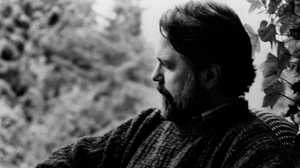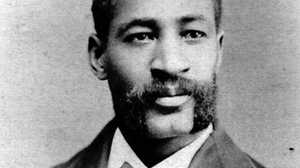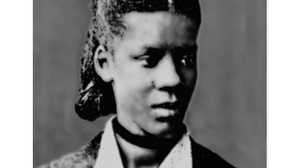Ella Sheppard, Soprano

Ella Sheppard traveled with the Jubilee Singers for eleven years as a soprano, piano accompanist and Assistant Director. Admired for her musical talent, her quiet, confident style of leadership, and her commitment to the singers' evangelical mission, Sheppard was one of four of the troupe's members to participate in all three U.S. and European tours. Sheppard was extremely loyal to George White and continued to sing with his reorganized version of the group until 1882, when Frederick Loudin took over.
When Ella was a little girl, her slave mother discovered that their mistress had trained Ella to spy on her. "In agony of soul and despair," her mother ran to the river with her, intending to drown little Ella and herself. The chorus of "Swing Low, Sweet Chariot" -- a song Ella would later teach the Jubilee Singers -- has been attributed to the words of an elder that came to her rescue. Soon after this incident, Ella's father was permitted to purchase the three-year-old girl for $350 and take her to Nashville. Her mother, however, was forced to remain a slave in Mississippi. Ella's father eventually remarried another enslaved woman whose freedom he was permitted to buy for $1,300, but creditors threatened to seize his new wife when his business failed. The family fled to Cincinnati.
In Cincinnati, Ella started school, studied piano, and took voice lessons with a prominent white teacher who recognized her talent and agreed to instruct her only on the condition that she enter her home through the back door and come only at night. When Ella's father died of cholera in 1866, she began performing locally in order to help support herself and her stepmother.
At fifteen, Ella moved to Gallatin, Tennessee, just north of Nashville, to assist with the education of freed slaves. Quickly realizing she was not really qualified to be a teacher, Ella saved six dollars over the next five months and enrolled at Fisk in the fall of 1868. There she began helping George White with his choir. When he invited her to be an assistant music teacher a year later, "Miss Sheppard" became Fisk's first black instructor. When White later proposed that Sheppard leave the position to accompany his singers on a fundraising tour, she agreed to go. She was now seventeen years old.
The singers immediately discovered that the white evangelical Christians attending their concerts were more enthusiastic for the few slave spirituals included in their repertoire than for the popular and classical tunes that made up the bulk of their program. Sheppard later noted that, not long before this time, they did not dream of ever singing the spirituals in public due to their sacred content and their association with dark memories of slavery. The public’s unexpected appreciation of this music, however, made Sheppard suddenly responsible for learning as many spirituals as she could and incorporating them into the singers’ repertoire as they traveled. She also began to regularly stand in for White as Director when he became ill or left the group in order to set up concerts in other cities. Despite the toll that touring soon began to take on Sheppard's physical and emotional health, she would leave the group only once during the seven years of its existence, taking a six-week break in 1878 when a respiratory infection threatened to kill her.
Sheppard married Fisk graduate George Moore upon returning to Nashville in 1878. After living in Oberlin for a year while he obtained a degree in Divinity, they moved to Washington, D.C., in 1883. Moore served as a pastor there for several years, taught Theology at Howard University, and, with his wife, became an advocate for the social advancement of African Americans. The Moores led a temperance campaign against thirteen saloons in their neighborhood and are said to have transformed it into a pleasant residential area. They also became friends with a number of well-known black intellectual couples, among them Frederick and Helen Douglass and Booker T. and Margaret Murray Washington.
In 1892, the Moores moved back to Nashville, where they built a house across from Fisk's campus and renewed their relationship with the school. In addition to assisting Fisk's various choirs and sometimes singing herself, Mrs. Moore became a researcher and lecturer on African American and women's issues, lending her voice and her pen to such organizations as the American Missionary Association (A.M.A.) and the National Association of Colored Women. In addition to her various social and political activities, Moore paid for the education of several Fisk students, including her half sister. She continued to take care of her mother -- with whom she'd been reunited when she was fifteen and had supported ever since -- and raised both her youngest son and a niece that had moved in with the couple when she was four.
In June 1914, Mrs. Moore became ill after giving a commencement address at the Trinity School, an institution founded by the A.M.A. in Athens, Alabama. Just a few days before the graduation from Fisk of her youngest son -- named Clinton Fisk Moore after the school's founder -- Ella Sheppard Moore passed away. She was sixty-three years old.







